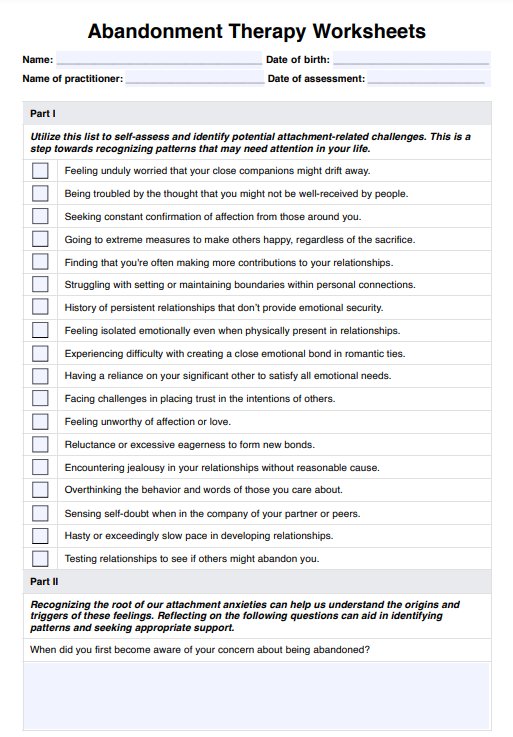Abandonment therapy is a specialized approach that helps people deal with feelings and different aspects of abandonment, neglect, or rejection. It focuses on understanding past experiences and trauma and developing ways to cope and heal from these wounds.

Abandonment Therapy Worksheets
Discover effective Abandonment Therapy Worksheets to heal emotional wounds. Explore triggers, coping strategies & self-awareness. Download now!
Use Template
Abandonment Therapy Worksheets Template
Commonly asked questions
Anyone struggling with abandonment issues, such as difficulties in relationships, fear of abandonment, or low self-esteem, can benefit from abandonment therapy.
Abandonment therapy uses various therapeutic approaches like cognitive-behavioral therapy, mindfulness, and emotion-focused strategies to address abandonment issues effectively.
EHR and practice management software
Get started for free
*No credit card required
Free
$0/usd
Unlimited clients
Telehealth
1GB of storage
Client portal text
Automated billing and online payments











